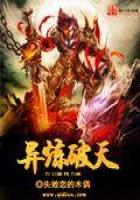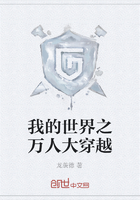As the royal cavalcade issued from the palace and descended through the streets of Granada the populace greeted their youthful sovereign with shouts, anticipating deeds of prowess that would wither the laurels of his father. The appearance of Boabdil was well calculated to captivate the public eye, if we may judge from the description given by the abbot of Rute in his manuscript history of the House of Cordova. He was mounted on a superb white charger magnificently caparisoned. His corselets were of polished steel richly ornamented, studded with gold nails, and lined with crimson velvet. He wore a steel casque exquisitely chiselled and embossed; his scimetar and dagger of Damascus were of highest temper; he had a round buckler at his shoulder and bore a ponderous lance. In passing through the gate of Elvira, however, he accidentally broke his lance against the arch. At this certain of his nobles turned pale and entreated him to turn back, for they regarded it as an evil omen.
Boabdil scoffed at their fears as idle fancies. He refused to take another spear, but drew forth his scimetar and led the way (adds Agapida) in an arrogant and haughty style, as though he would set both Heaven and earth at defiance. Another evil omen was sent to deter him from his enterprise: arriving at the rambla, or dry ravine, of Beyro, which is scarcely a bowshot from the city, a fox ran through the whole army and close by the person of the king, and, though a thousand bolts were discharged at it, escaped uninjured to the mountains. The principal courtiers now reiterated their remonstrances against proceeding; the king, however, was not to be dismayed by these portents, but continued to march forward.*
*Marmol, Rebel. de los Moros, lib. 1, c. xii., fol. 14.
At Loxa the army was reinforced by old Ali Atar with the chosen horsemen of his garrison and many of the bravest warriors of the border towns. The people of Loxa shouted with exultation when they beheld Ali Atar armed at all points and mounted on his Barbary steed, which had often borne him over the borders. The veteran warrior, with nearly a century of years upon his head, had all the fire and animation of youth at the prospect of a foray, and careered from rank to rank with the velocity of an Arab of the desert. The populace watched the army as it paraded over the bridge and wound into the passes of the mountains, and still their eyes were fixed upon the pennon of Ali Atar as if it bore with it an assurance of victory.
The Moorish army entered the Christian frontier by forced marches, hastily ravaging the country, driving off the flocks and herds, and ****** captives of the inhabitants. They pressed on furiously, and made the latter part of their march in the night, to elude observation and come upon Lucena by surprise. Boabdil was inexperienced in warfare, but had a veteran counsellor in his old father-in-law; for Ali Atar knew every secret of the country, and as he prowled through it his eye ranged over the land, uniting in its glare the craft of the fox with the sanguinary ferocity of the wolf.
He had flattered himself that their march had been so rapid as to outstrip intelligence, and that Lucena would be an easy capture, when suddenly he beheld alarm-fires blazing upon the mountains.
"We are discovered," said he to Boabdil; "the country will be up in arms; we have nothing left but to strike boldly for Lucena: it is but slightly garrisoned, and we may carry it by assault before it can receive assistance." The king approved of his counsel, and they marched rapidly for the gate of Lucena.















